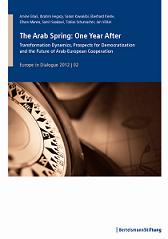Europe in Dialogue
Europe in Dialogue
Publishing House: Bertelsmann-Stiftung
Subject(s): Politics / Political Sciences
Frequency: irregular and other
Print ISSN: 1868-5048
Status: Later issues not available
- 2009
- 2010
- 2011
- 2012
- Issue No. 01
- Issue No. 01
- Issue No. 01
- Issue No. 02
- Issue No. 01
- Issue No. 02
- Issue No. 03
Articles list
{{ article.TitleOriginalLanguage }}
{{ article.TitleOriginalLanguage }}
({{ article.TitleEnglish }})
- Publication: {{ article.Publisher }} ({{ article.Issue }})
- Author(s): {{ article.Authors }}
- Contributor(s): {{ article.Contributors }}
- Language: {{ article.Language }}
- Subject(s): {{ article.Subjects }}
- Issue: {{ article.Issue }}
- Page Range: {{ article.PageRange }}
- No. of Pages: {{ article.NumberOfPages }}
- Keywords: {{ article.Keywords }}
- Summary/Abstract: {{ article.SummaryAbstract }}
- Price: {{ common.currency(article.Price) }}
Short Description
The Europeans can be proud as they look back on fifty years of peaceful integration. Nowadays many people in the world see the European Union as a model of how states and their citizens can work together in peace and in freedom. However, this achievement does not automatically mean that the EU has the ability to deal with the problems of the future in a rapidly changing world. For this reason the European Union needs to keep developing its unity in diversity in a dynamic way, be it with regard to energy issues, the euro, climate change or new types of conflict. Self-assertion and solidarity are the fundamental concepts which will shape the forthcoming discourse.
“Europe in Dialogue“ wishes to make a contribution to this open debate. The analyses in this series subject political concepts, processes and institutions to critical scrutiny and suggest ways of reforming internal and external European policymaking so that it is fit for the future. However, “Europe in Dialogue“ is not merely trying to encourage an intra-European debate, and makes a point of including authors from non-EU states. Looking at an issue from a different angle or from a distance often helps to facilitate the crucial change of perspective which in turn makes it possible to continue to develop Europe in a meaningful way and to engage in a critical and yet courteous discourse with other civilizations and continents.

